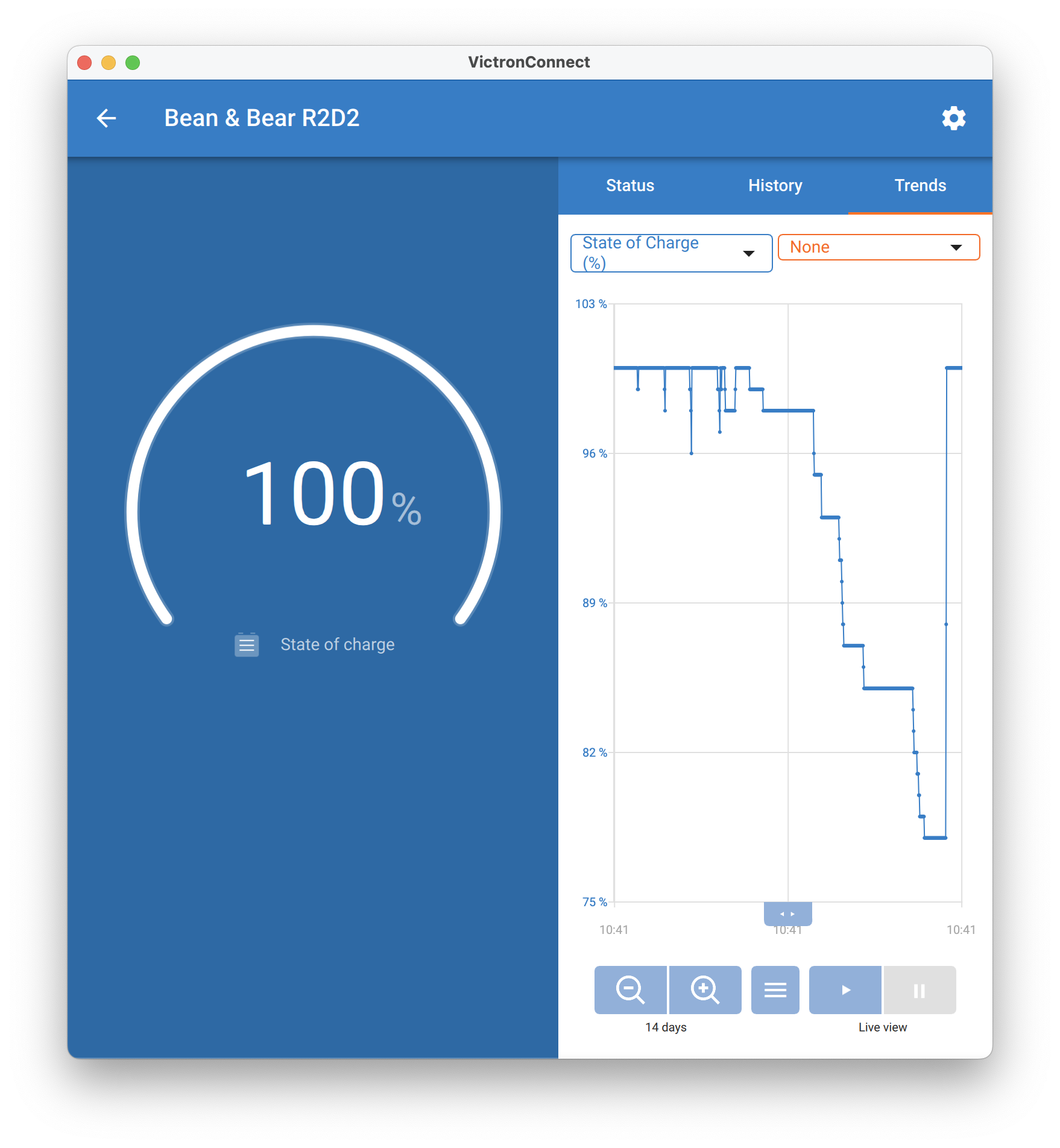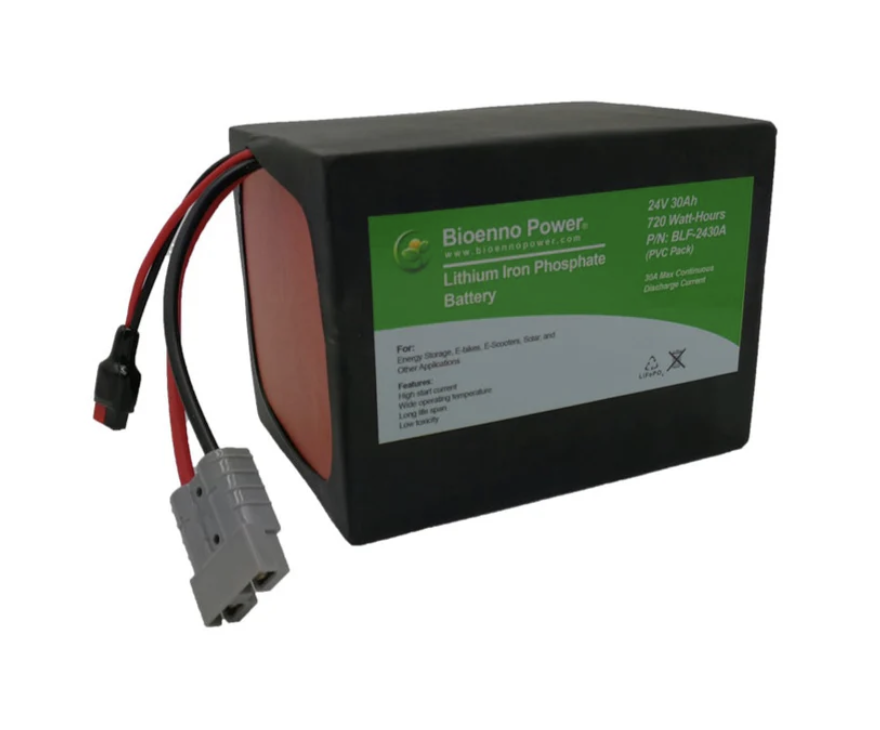Hi! I know this has been asked a few times but I can't quite seem to get the settings right and am hoping someone here can take pity on me.
My project is a full-sized R2-D2 astromech droid with a 24v 30Ah LiFePO4 battery. At the recommendation of a fellow builder, I bought and installed the Victron SmartShunt to monitor battery life remotely.
Unfortunately, as has happened to several others here, the SoC seems to reset to 100% after usage. I took R2 to an event a few days ago and watched the SoC drop steadily as the day wore on - all good. But by the time I got him back home, the SoC had returned to 100%. I DID disconnect the battery for transport, but I HAVE NOT charged him back up yet.
I'm sure I have a setting wrong but, being new to the world of robotics and batteries, I'm not sure which. I've included screenshots of the settings and the SoC dropping and increasing, below.
The battery is the Bioenno Power BLF-2430A.
Any help truly appreciated!



